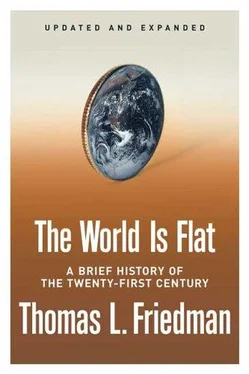The founders of al-Qaeda are not religious fundamentalists per se. That is, they are not focused simply on the relationship between themselves and God, and on the values and cultural norms of the religious community. They are a political phenomenon more than a religious one. I like to call them Islamo-Leninists. I use the term “Leninists” to convey the utopian-totalitarian vision of al-Qaeda as well its self-image. As al-Qaeda's chief ideologist, Ayman al-Zawahiri, has put it, al-Qaeda is the ideological vanguard, whose attacks on the United States and other Western targets are designed to mobilize and energize the Muslim masses to rise up against their own corrupt rulers, who are propped up by America. Like all good Leninists, the Islamo-Leninists are certain that the Muslim masses are deeply dissatisfied with their lot and that one or two spectacular acts of jihad against the “pillars of tyranny” in the West will spark them to overthrow the secularizing, immoral, and unjust Arab-Muslim regimes that have defiled Islam. In their place, the Islamo-Leninists, however, do not want to establish a workers' paradise but rather a religious paradise. They vow to establish an Islamic state across the same territory that Islam ruled over at its height, led by a caliph, a supreme religious-political leader, who would unite all the Muslim peoples into a single community.
Islamo-Leninism, in many ways, emerged from the same historical context as the radical European ideologies of the nineteenth and twentieth centuries. Fascism and Marxist-Leninism grew out of the rapid industrialization and modernization of Germany and Central Europe, where communities living in tightly bonded villages and extended families suddenly got shattered and the sons and fathers went off to the urban areas to work for big industrial companies. In this age of transitions, young men in particular lost a sense of identity, rootedness, and personal dignity that had been provided by traditional social structures. In that vacuum, along came Hitler, Lenin, and Mussolini, who told these young men that they had an answer for their feelings of dislocation and humiliation: You may not be in the village or small town anymore, but you are still proud, dignified members of a larger community-the working class, or the Aryan nation.
Bin Laden offered the same sort of ideological response for young Arabs and Muslims. The first person to recognize the Islamo-Leninist character of these 9/11 hijackers-that they were not fundamentalists but adherents of an extreme, violent political cult-was Adrian Karatnycky, the president of Freedom House. In a November 5, 2001, article in the National Review, titled “Under Our Very Noses,” Karatnycky makes the following argument: “The key hijackers... were well-educated children of privilege. None of them suffered first-hand economic privation or political oppression.” And none of them seem to have been raised in a particularly fundamentalist household. Indeed, the top 9/11 operatives and pilots, like Mohammed Atta and Marwan al-Shehhi, who shared an apartment in Hamburg, where they both attended the Technical University of Hamburg-Harburg, all seem to have been recruited to al-Qaeda through cells and prayer groups-after they moved to Europe.
None of these plotters was recruited in the Middle East and then planted in Europe years in advance by bin Laden, notes Karatnycky. To the contrary, virtually all of them seem to have lived in Europe on their own, grown alienated from the European society around them, gravitated to a local prayer group or mosque to find warmth and solidarity, undergone a “born-again” conversion, gotten radicalized by Islamist elements, gone off for training in Afghanistan, and presto, a terrorist was born. Their discovery of religion was not just part of a personal search for meaning. It went far beyond fundamentalism. They converted Islam into a political ideology, a religious totalitarianism. Had the 9/11 hijackers been students at Berkeley in the early 1970's, they would have been Trotskyite radicals. “To understand the September 11 terrorists, we should have in mind the profile of the classic revolutionary: deracinated, middle class, shaped in part by exile. In other words, the image of Lenin in Zurich; or of Pol Pot or Ho Chi Minh in Paris... For them Islamism is the new universal revolutionary creed, and bin Laden is Sheikh Guevara,” writes Karatnycky. “Like the leaders of America's Weather Underground, Germany's Baader-Meinhof Gang, Italy's Red Brigades, and Japan's Red Army Faction, the Islamic terrorists were university-educated converts to an all-encompassing neo-totalitarian ideology.”
My friend Abdallah Schleifer, a journalism professor in Cairo, actually knew Ayman al-Zawahiri, bin Laden's number two and chief ideologue, when al-Zawahiri was a young doctor on his way to becoming a young neo-Leninist Muslim revolutionary. “Ayman was attracted from the time he was a teenager into a Utopian vision of an Islamic state,” Schleifer told me on a visit to Cairo. But instead of being drawn to the traditional concern of religion-the relationship between oneself and God-al-Zawahiri became drawn to religion as a political ideology. Like a good Marxist or Leninist, al-Zawahiri was interested in “building the Kingdom of God on earth,” said Schleifer, and Islamism became his Marxism-his “utopian ideology.” And where Mohammed Atta meets al-Zawahiri is the intersection where rage and humiliation meet the ideology that is going to make it all right. “Ayman is saying to someone like Mohammed Atta, 'You see injustice? We have a system-a system, mind you, a system-that will give you [justice], not a religion, because religion gives you inner peace.' It doesn't necessarily solve any social problem. But [al-Zawahiri] is saying we have a system that will give you justice. You feel frustration? We have a system that will enable you to flower. The system is what we call Islamism-an ideological, highly politicized Islam, in which the spiritual content-the personal relationship [with God]—is taken out of Islam and instead it is transformed into a religious ideology like fascism or communism.” But unlike the Leninists, who wanted to install the reign of the perfect class, the working class, and unlike Nazis, who wanted to install the reign of the perfect race, the Aryan race, bin Laden and al-Zawahiri wanted to install the reign of the perfect religion.
Unfortunately, bin Laden and his colleagues have found it all too easy to enlist recruits in the Arab-Muslim world. I think this has to do, in part, with the state of half-flatness that many Arab-Muslim young people are living in, particularly those in Europe. They have been raised to believe that Islam is the most perfect and complete expression of God's monotheistic message and that the Prophet Muhammed is God's last and most perfect messenger. This is not a criticism. This is Islam's self-identity. Yet, in a flat world, these youth, particularly those living in Europe, can and do look around and see that the Arab-Muslim world, in too many cases, has fallen behind the rest of the planet. It is not living as prosperously or democratically as other civilizations. How can that be? these young Arabs and Muslims must ask themselves. If we have the superior faith, and if our faith is all encompassing of religion, politics, and economics, why are others living so much better?
This is a source of real cognitive dissonance for many Arab-Muslim youth-the sort of dissonance, and loss of self-esteem, that sparks rage, and leads some of them to join violent groups and lash out at the world. It is also the sort of dissonance that leads many others, average folks, to give radical groups like al-Qaeda passive support. Again, the flattening of the world only sharpens that dissonance by making the backwardness of the Arab-Muslim region, compared to others, impossible to ignore. It has become so impossible to ignore that some Arab-Muslim intellectuals have started to point out this backwardness with brutal honesty and to demand solutions. They do this in defiance of their authoritarian governments, who prefer to use their media not to encourage honest debate, but rather to blame all their problems on others-on America, on Israel, or on a legacy of Western colonialism-on anything and anyone but the dead hand of these authoritarian regimes.
Читать дальше












